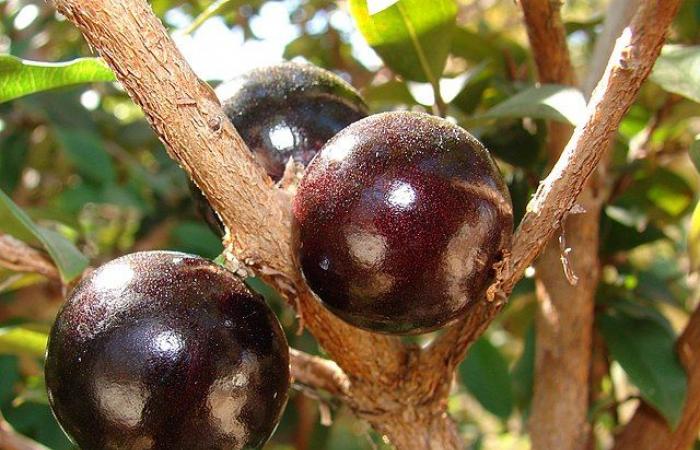Maria Fernanda Ziegler | FAPESP Agency – Generally discarded due to its astringent, “mouth-tying” taste, jaboticaba peel can be an excellent ally in the treatment of obesity and metabolic syndrome, study suggests published in the magazine Nutrition Research.
Conducted by researchers from the State University of Campinas (Unicamp), the research showed that daily consumption of at least 15 grams of fruit peel improved, over five weeks, inflammation and blood glucose levels in individuals with metabolic syndrome. and obesity.
“The phenolic compounds and fibers present in the jabuticaba peel have the power to modulate glucose metabolism. We had already observed this effect in previous studies. In this work, however, we evaluated prolonged consumption and discovered that this effect on glucose even occurs in the period after the meal, that is, on postprandial glycemia”, he states. Mario Roberto Maróstica Juniorprofessor at Unicamp and research coordinator.
According to the researcher, even in healthy individuals, blood glucose levels usually increase after meals, then return to normal levels. “Therefore, something that can lower blood sugar after a meal is interesting, as it causes the subject to have controlled blood sugar levels over time, which results in a healthier life and more controlled parameters”, he explains.
The work, supported by FAPESP through three projects (22/09493-9, 19/12244-8 It is 21/02271-8), involved 49 participants with metabolic syndrome and obesity. Some received a daily supplement with 15 grams of jaboticaba bark for five weeks, and the others just a placebo. All underwent blood tests to monitor blood glucose. Anthropometric measurements were also evaluated, such as body weight and waist circumference, as well as blood pressure and inflammatory parameters, such as the protein interleukin-6, considered a marker of inflammation related to obesity.
“The study showed positive results in relation to the reduction in postprandial blood glucose levels and inflammation levels in the group that received the supplement. But it is worth mentioning that the jaboticaba peel does not perform miracles, it is just an excellent way to help modulate blood sugar levels. This means that the strategy needs to be accompanied by other measures, such as good nutrition and physical exercise”, highlights the researcher to FAPESP Agency.
Bioactive compounds
Among the phenolic compounds present in the jabuticaba peel are anthocyanins, which, in addition to giving jabuticaba and other fruits their purplish color, interfere with glucose metabolism, stimulating, above all, intestinal L-cells. “When these substances reach the intestine, they come into contact with L cells, responsible for releasing a compound called GLP-1 (glucagon-like peptide-1), which stimulates the release of insulin in the pancreatic cell,” he says.
The researcher emphasizes that it is the insulin released in the pancreas that improves the use of glucose. “This is one of the functions of insulin: arriving at muscle cells – which are great glucose collectors – it carries out a signaling cascade that favors the transport of glucose into the cell”, he says.
Metabolic syndrome is a set of metabolic and hormonal changes that increase an individual’s risk of developing cardiovascular diseases. It is characterized by high blood pressure, abdominal obesity, high blood sugar (hyperglycemia) and abnormal levels of triglycerides and HDL-cholesterol. In the study, the 49 participants with metabolic syndrome had at least three of these five factors.
The researcher also highlights that obesity in general is associated with higher levels of pro-inflammatory molecules. “It’s as if the person has constant inflammation and this impairs the entire insulin action. This is why, in general, overweight and obese people also have insulin resistance. In these cases, generally, despite insulin being produced, it does not act,” he says.
Generally, this imbalance in glucose levels (which leads to type 2 diabetes) can be corrected with medication or the adoption of healthy habits and weight loss. “Jabuticaba peel also acts to reduce interleukin-6, which plays a key role in the development of insulin resistance and contributes to inflammation of adipose tissue. It therefore has a positive effect not only on pre-prandial glucose, but also reduces inflammation levels, which makes it an ally in cases of metabolic syndrome”, he says.
The problem, according to the researcher, is that no one wants to eat the jaboticaba skin because it is very astringent. “But this can be overcome by consuming extracts and supplements with the fruit peel already available on the market”, he adds.
The article Jaboticaba peel improves postprandial glucose and inflammation: A randomized controlled trial in adults with metabolic syndrome can be read at: www.sciencedirect.com/science/article/abs/pii/S0271531724000277?via%3Dihub.
Tags: Jaboticaba bark reduces inflammation blood glucose people metabolic syndrome
--





